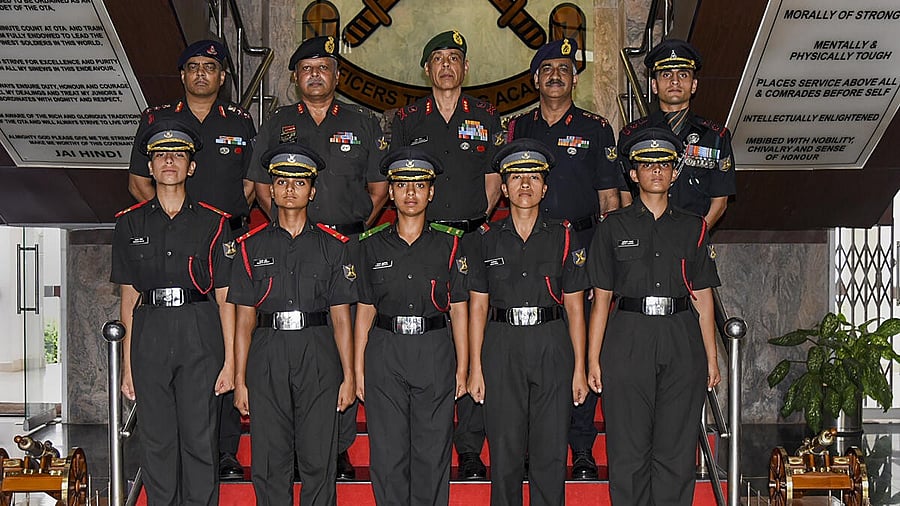
Women cadets who secured commission in the Regiment of Artillery - an elite combat support arm and significant force multiplier of the mighty Indian Army.
Credit: PTI File Photo
It is surprising that there is still resistance from the government to the idea of giving permanent commission to women in the armed forces, despite several judgements and directions from the Supreme Court in the matter and strong public opinion in favour of it. The government told the court that women could not be given certain jobs in the Coast Guard because it was functionally different from the Indian Army and the Navy. The court told the government that it could not accept the argument in today’s time and warned that it would step in if the government failed to remedy the situation. The court made the observation while hearing a petition filed by a short service commission Coast Guard navigator Priyanka Tyagi, who was released after her 14-year stint with the force in December last year without being considered for permanent commission.
The government also tried to dillydally on the matter by saying that it was open to reviewing it and has constituted a board to consider “structural changes” in the force. The court described the government’s reluctance to see women short service commission officers in the Coast Guard as “patriarchal”. It said “if women can guard borders, they can even guard the coasts,” and asked why the government was not translating the talk of women-empowerment into action. The court had in February 2020 made a landmark ruling paving the way for permanent commission for women in the Army and the Navy. The extension of the ruling to the Coast Guard should have come naturally. It defies reason and common sense to claim that the Coast Guard is different from other forces and women are unfit to perform certain functions in that force.
The government’s attitude shows that the resistance to giving equal treatment to women persists in the leadership of the armed forces and the government. When it is accepted that women are equal to men in every respect, there is no reason why they should be denied opportunities and positions that they deserve. That is discrimination and denial of fair play and justice. It wrong to force a woman officer to knock at the doors of the country’s highest court to get justice. There may be many other women in the armed forces or in other fields who may not have the inclination or means to go to court to get their due when it is denied to them. It is the responsibility of the government and the establishment to ensure that justice is done by default, not when demanded. There should be no place for gender-based discrimination in any government organisation.
